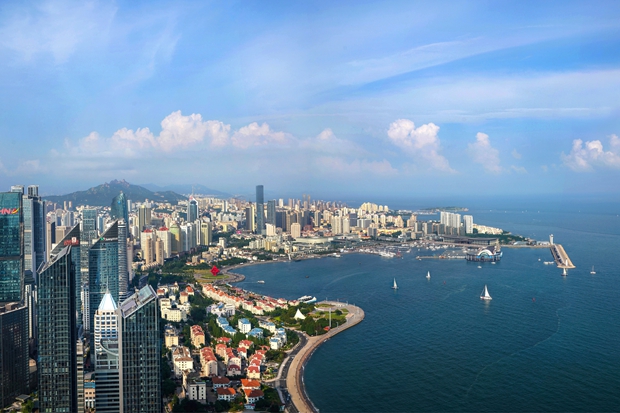Shandong boosts marine tourism development
(chinadaily.com.cn)| Updated : 2023-12-25
Print Print
The eastern coastal city of Qingdao, Shandong province. [Photo provided to chinadaily.com.cn]
Shandong province is making remarkable strides in advancing the high-quality development of marine tourism. With its picturesque coastal landscapes, vibrant cultural heritage, and diverse marine resources, Shandong has become a popular destination for travelers seeking a unique and enriching experience.
Through strategic planning and investment, Shandong has successfully developed comprehensive tourism infrastructure, including world-class resorts, luxury hotels, and modern transportation networks. These efforts have not only enhanced the overall visitor experience but also created numerous job opportunities for local communities.
Moreover, Shandong has prioritized the preservation and sustainable utilization of its marine resources. The province has implemented strict environmental regulations to protect its pristine coastline and marine ecosystems. By promoting responsible tourism practices, Shandong is ensuring the long-term viability of its marine tourism industry.
Shandong has also focused on offering enriching cultural experiences for visitors. From traditional fishing villages to ancient maritime museums, tourists can immerse themselves in the region's rich maritime heritage. Additionally, Shandong's local cuisine, renowned for its fresh seafood and distinctive flavors, adds a delectable touch to the overall travel experience.
The Shandong Provincial Department of Culture and Tourism, along with other departments, recently issued implementation plans for promoting the high-quality development of marine tourism and leisure vacation tourism.
With its commitment to high-quality development, Shandong is poised to become a leading marine tourism destination in China and beyond. By 2026, the seven coastal cities in the province are expected to receive more than 470 million tourists annually, while the tourism income is expected to exceed 670 billion yuan ($93.59 billion).

 Xi's Moments
Xi's Moments  Shandong gains remarkable results in promoting high-quality development
Shandong gains remarkable results in promoting high-quality development  2025 National Two Sessions
2025 National Two Sessions